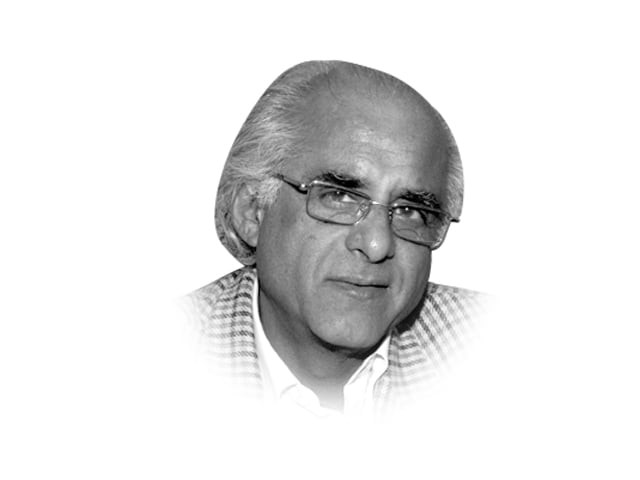Greeks in Pakhtunkhwa?
Bactrian Greeks ruled Peshawar, Taxila for 200 years. Some Greek cultural peculiarities became part of Pakhtun mores.

Never having seen Attan or the Greek dance, I am unable to help Emran. But his query brought something else to mind. Back in 1999, I was in Bannu where I went to Chowk Bazaar one evening to see the local ‘eid’ that takes place 365 days a year. Every evening around sunset, young men who are to wed either that day or the following, gather in this bazaar to celebrate the forthcoming Hochzeit.
Each man comes in the company of his friends, leading a piper and a drummer. The chowk becomes a heaving mass of young bodies bedecked with garlands of marigold and rose, as they sing, dance and generally make merry. Every party has cartons of confectionary which they gorge on and force upon any unwary outsider who may wander into their circle.
That long ago evening, I did not go into the crowd, but watched from a rooftop. The young men with their garlands, mostly worn across the chest bandoleer-style, over one shoulder and under the other arm, (what else to expect from a red-blooded Pakhtun?) were in a state of the most genuine gaiety. This was a public celebration of such remarkable intensity as I have rarely seen.
As I watched from my rooftop perch, I suddenly saw in this merriment shades of a Dionysian revel. The flower-bedecked youth, the wild music, the singing, dancing processions were all other-worldly. Only women and the bulging wineskins were missing in the crowds. And I knew then that the cartons of confectionary were the legitimate face of the wine that would once have flowed so freely in the streets of Bannu. At some point in time, after the coming of Islam, bhang, the marijuana drink, would have replaced wine. Perhaps even hashish was consumed.
But that day in 1999, there were no intoxicants being used — at least not publicly. And there were no women. The revel nevertheless had a very Dionysian air.
A few kilometres outside Bannu, the mound of Akra rises above neat parcels of farmland. When archaeologists investigated this mound they found, among other things, coins of the Bactrian Greeks. Now, this branch of Greeks descended from Alexander’s general, Seleucus Nikator, who ruled over Syria after the conqueror’s empire broke up following his death.
In 184 BCE, the Bactrian Greeks, taking advantage of the decay of the Mauryan dynasty, captured Kabul, Peshawar and Taxila. Their coins from Akra show that the valley of the Kurrum River also came under their sway. And so they ruled this land for nearly two hundred years — far longer than Alexander.
Surely, in that time, some Greek cultural peculiarities became part of Pakhtun mores. Surely, the ancestors of the young men I saw so bursting with celebration would have watched from their rooftops the first Dionysian orgy in the streets of Bannu. The flowing wine, the free mixing of women and men, the song and the dance would have pleased the soul of any mortal.
The Pakhtuns copied the celebration and, over time, it became a sort of fertility ritual in which men and women took part. Over time, Dionysus was forgotten, women banished; the public perception of the new religion pushed wine into the privacy of the home and replaced it with confectionary.
My friend, Kaiser Tufail, my guru when it comes to talking DNA, tells me that the Pakhtuns do not have Greek blood. That may be right, but among them reverberate the echoes of Greek culture.
The celebration I write of was in 1999. I have not returned to Bannu since. I do not know if what they called their ‘eid’ still happens in this time of terrorism.
Published in The Express Tribune, November 26th, 2011.















COMMENTS
Comments are moderated and generally will be posted if they are on-topic and not abusive.
For more information, please see our Comments FAQ